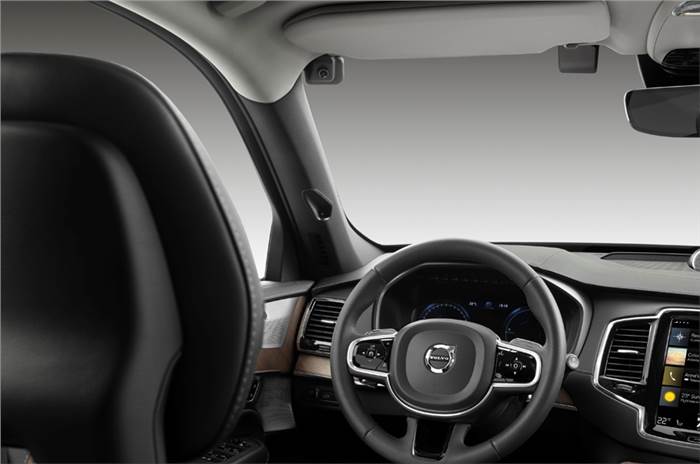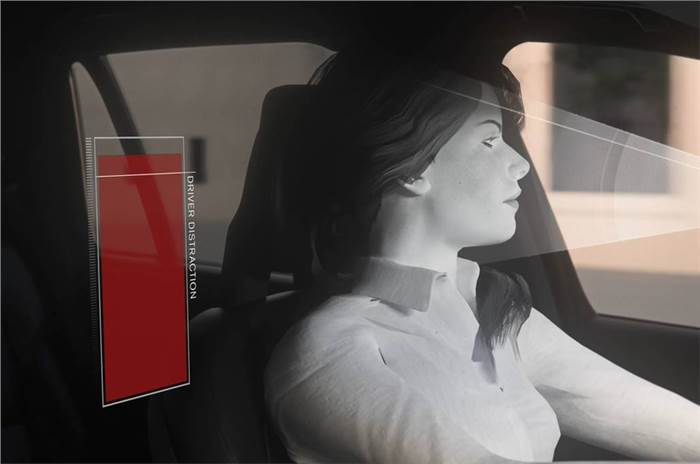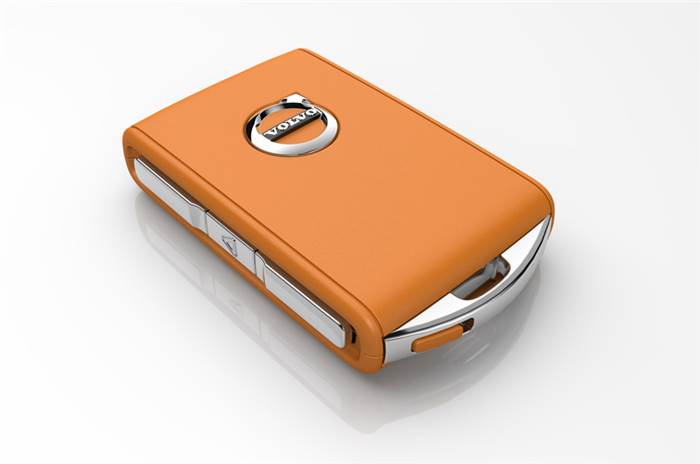At its Safety Moment event in Gothenburg, Sweden, Volvo announced that by the ‘early 2020s’, it would equip all new cars with a driver monitoring system – comprising in-cabin cameras and other sensors – to prevent accidents caused by driver distraction and drunk driving.
Volvo’s vision is that no one should be killed or seriously injured in one of its cars and SUVs by 2020, and the driver monitoring system, along with the 180kph speed limit Volvo will impose in all new cars starting 2021, are steps to help make that vision a reality.
Installing in-car cameras could potentially raise concerns about privacy, but the company says it can safely address any such doubts. Speaking to Autocar India at the event in Sweden, Jan Ivarsson, Senior Technical Advisor Safety, Volvo Cars, said “We have thought about these issues a lot, and are designing systems and balances to ensure that driver privacy is very well guarded.”
The driver monitoring system will be introduced on the next-generation Volvo models, which will be based on the SPA2 platform and will appear in the ‘early 2020s’. For now, Volvo has neither revealed the number of in-car cameras that will be part of the driver monitoring system, nor their position. However, the test XC90 equipped with the system had an in-car camera mounted on the A-pillar.
Volvo’s driver monitoring system will use inputs from the in-car cameras, along with steering and braking data to determine if a driver is distracted or intoxicated and intervene if needed. Initially the system will issue a driver alert, which, if unheeded, will lead to the system reducing vehicle speed and alerting the Volvo-on-call center, who will then call the driver. If all of these interventions are ignored, the system will slow the car down and safely park it.
Volvo admits its ideas are radical, but hopes this starts a conversation about whether carmakers have a right – or, perhaps, an obligation – to intervene in cases of erratic and potentially dangerous driver behaviour, which could compromise safety.
Project E.V.A aims to help make cars safe for all
At the event which was held to celebrate 60 years of Volvo sharing its three-point seat-belt invention, the company also announced Project E.V.A. (Equal Vehicles for All). As part of this initiative, Volvo will make public its safety research from over 40 years in a central digital library. Speaking at the event, Lotta Jakobsson, professor and senior technical specialist at Volvo Cars Safety Centre, said “We hope our research data on tens of thousands of real-life accidents will help all carmakers ensure safer cars for all, irrespective of age, height, gender or weight.” One example of the kind of data this project will provide is that Project E.V.A shows how women are more at risk in certain accident scenarios thanks to differences in anatomy and most tests employing male crash test dummies. In 1970, Volvo set up its own accident research team that has analysed real-life data from accidents accounting for more than 43,000 cars and 72,000 occupants till date.
Care Key to introduce customisable speed limit
Volvo also unveiled what it calls the Care Key, which allows a Volvo owner to set a speed limit for themselves, their family members or friends. The key will come standard on all model year 2021 Volvo cars and SUVs. Speaking at the event, Håkan Samuelsson, Volvo Cars’ chief executive, said “People want to be able to share their car with friends and family, but aren’t sure how to make sure they are safe on the road. The Care Key provides one good solution.”
Volvo believes that further to the immense safety value, its technologies and measures will also deliver a direct financial benefit. The company is working with firms in many markets to offer special and better insurance policies to Volvo owners. Volvo is expected to soon make an announcement with its national insurance firms.
Click here for all Volvo models, prices, reviews, images, videos and more.


















Comments
Member Login
Personal Details
No comments yet. Be the first to comment.